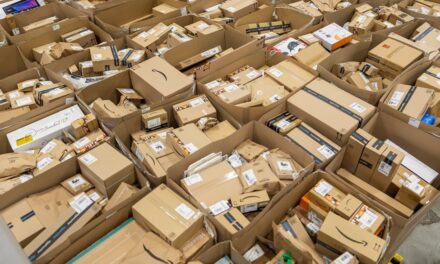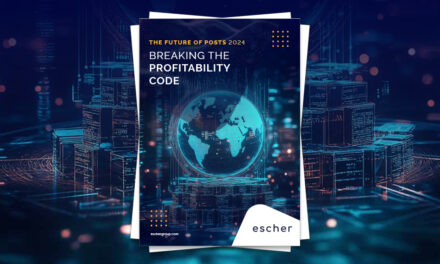
When footfall falls away
How posts can expand their physical and online networks to build their brands and their businesses. Newer technologies, business models and demographics all present challenges to the mail. Liam Church, president and CEO at Escher Group shows how the future of the mail can be secured if posts provide wider access to products and services and empower citizens to give them control over their mail, their transactions and their data.
A lot of ink has been spilled about the decline of postal services. Deregulation will let canny commercial operators cherry-pick the most profitable services. Online access drives down visits to post offices, cutting posts’ business yet further.
It’s a popular narrative of gloom and doom, often positioned as an inevitable consequence of the all-conquering march of privatisation, liberalisation and technology.
But is it right? Amazon hasn’t killed bookstores. But it has made them change their game – diversify, get specialised, merge. There’s no reason why posts shouldn’t have a future in the ‘physical’ world if they too can adapt. Footfall need not fall away. But posts must also recognise that just as their customers have dual lives – online and off – so must they. There is real opportunity if posts take advantage of this, building both their physical and electronic networks.
There are three, interlinked ways in which posts can build their ‘real world’ retail network.
Expand the footprint
Why limit ‘physical’ presence to established post offices? In these times it’s unlikely that posts will expand their branch networks, but online kiosks and electronic access points mean they have the potential to increase their physical footprint at a reduced cost. As well as spreading access, this also builds a post’s brand presence and awareness in the public mind.
Add content
If people can do more at post offices – and ‘remote’ outlets like in-store kiosks, then customers will visit more. Offering a broader range of transactions – more payment options, additional financial services – will help posts to remain indispensable to their many loyal retail users and to become indispensable to others.
Speed up services
Nobody likes queues – it’s one of the main factors that turns people away from post offices. Posts have been addressing this for years, improving both teller-side automation and also teller/customer interaction. There’s still potential for more automation, though, whilst still retaining the face-to-face transaction that so many people continue to value.
If posts can stem the flow of footfall and broaden the services they offer, then they can move on to consolidate and build revenues through cross-selling and up-selling – and incentivising employees to do so. In some countries, this has led to a 15% increase in transaction volumes. It’s the ‘would you like fries with that?’ approach – offering something that’s relevant and desirable alongside the transaction a customer is making. It might be insurance or tracking for a valuable item, or the option to send something else alongside money transfer.
Whilst posts have an opportunity to deal with decline in their ‘physical’ networks, they have huge potential online for offering both new and complementary services.
Capitalise on trust
It’s online that posts have a once-in-a-lifetime opportunity to capitalise on one of their biggest assets: their brands and the deep trust they inspire in customers. Because whilst services like banking and retail have flourished online, there are only ‘pockets’ of trust: some operators are more reliable than others. And whilst we’re being encouraged to send all of our personal data out into the ‘cloud’, many are wondering who’s going to be in charge of it when it’s out there.
Online hasn’t always come to mean convenient, either. How does a consumer gather together all their utility bills, for example, when each requires a separate web-based service and login? It’s easier to rummage in a filing cabinet. Complexity has been one of the unintended consequences of the Internet revolution and it provides a golden opportunity for posts. What if they could be the key, trusted source through which people could consolidate all their transactional data?
Neutrality and permanence
That way, people could store and manage the records of all the transactions they make with major companies safely, reliably and forever. It overcomes the issues of trust and complexity and also deals with the problem of permanence, with posts in a position to guarantee the long-term storage of this data.
It also addresses the issue of privacy. We live in world where not only our addresses but the images of our streets are being ‘monetised’ for commercial use. Consumers are rightly sceptical of the private firms that hold their data. Posts, on the other hand, offer the neutrality that people seek when so many aspects of their digital lives are being privatized.
Have the doom scenarios for post been overdone? Almost certainly. The future may not be secure, but posts have an enormous opportunity to expand their presence and take advantage of the enormous and under-exploited power in their brands. The post office of the future won’t look the same, but there’s no reason why it shouldn’t have the same presence.












